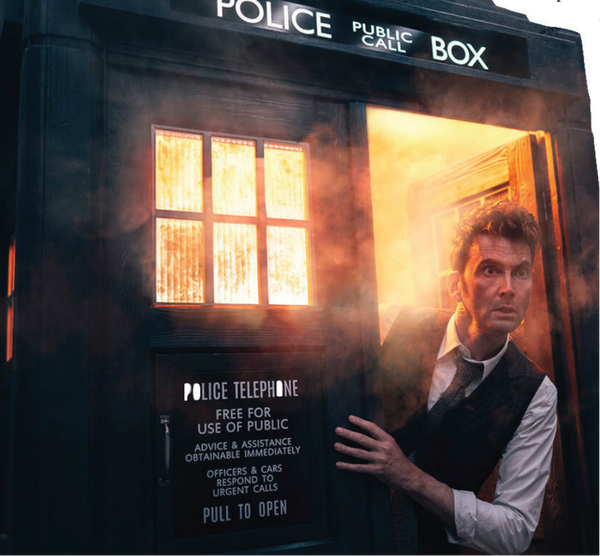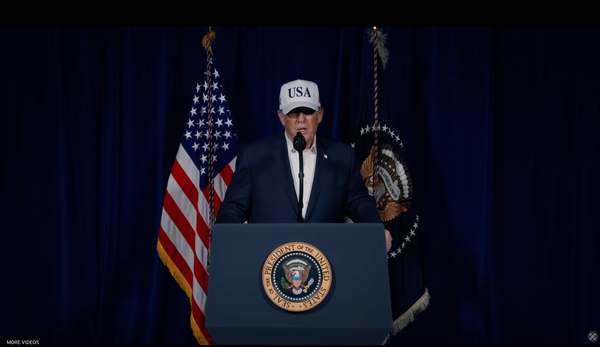Dune: Part Two proves cinema isn't dead yet
Redefining the big screen with Dune: Part Two’s monumental blockbuster success
Dune: Part Two is arguably one of the best blockbuster films of the last few years, perhaps even since the first installment was released in 2021. It is also one of the best sequels to be produced in a long time – the disappointments of Avatar 2 and The Marvels speak for themselves.
Let’s revisit the fall of cinema-going. The streaming industry started to properly take off throughout the 2010s, with Amazon Prime Video and Disney+ being launched in 2014 and 2019 respectively. These major services gave users a wider range of content and became the main competitors to Netflix, which led people to seek out lesser-known services such as Hulu and Mubi too. This coincided with an increase in the use of smart TVs, which can connect to these streaming services via Wi-Fi. When the people behind these platforms began to realise how much people value the convenience of being able to legally access ‘endless’ movies and TV shows on their home big screens, they realised they could invest in production of their own content to be released and available exclusively on their services.
Direct-to-streaming releases have had an impact on movie theatre attendance, a result exacerbated by the social-distancing measures and cinema closures sparked by Covid-19. Direct-to-streaming films thrived during this period as it became exceedingly difficult for independent and high-budget productions to make a profit. This also meant that production became less ambitious as films were being watched on smaller screens, and big blockbuster-style movie releases got delayed.
The first Dune film coincided with the reopening of cinemas and lifting of Covid restrictions in many countries, and was one of few major blockbusters being released at the time. My own review of Dune from 2021 is on the Felix website, and it was met with mixed reviews from critics and fans alike. However, this did not prevent director Dennis Villeneuve from being able to build up the hype for the second film in his franchise, continuing the story in Frank Herbert’s novel.
What Dune: Part One lacked, its sequel more than made up for. Part Two was definitely an economic success, maintaining its place at the top of the 2024 worldwide box office despite having been released back in early March and being followed by huge titles like Godzilla x Kong, Kingdom of the Planet of the Apes, and Furiosa: A Mad Max Saga. Although its runtime clocks in at nearly three hours – around 15 minutes longer than the first installment – Dune: Part Two is much better paced than its predecessor. Villeneuve spends just enough time on a given scene before switching focus to another character, and there is much more interesting development in both the characters and the plot as a whole. There is also a distribution of action and calmer scenes, allowing the audience time to appreciate the stunning setting and world-building without compromising on the excitement.
The visual effects and score were two areas in which the first film excelled, and Dune: Part Two didn’t disappoint either, in fact, the consistency of its production quality might even have been highlighted by how good the first film was. Zendaya finally commands the screen as Chani, while Timothée Chalamet (Paul Atreides) and Rebecca Ferguson (Lady Jessica Atreides) remain at the core of the star-studded cast.
Part Two gets to the crux of Herbert’s story, with Paul Atreides gaining god-like status among the Fremen and learning their ways with Chani’s patient guidance. Part of this process involved learning to tame and ride one of the massive sandworms, culminating in an epic cinematic sequence that was the perfect combination of build-up, exquisite special effects, and stunning score. Though the ending scenes of the film are a bit of a letdown, and somewhat underutilise the skills of Florence Pugh (Princess Irulan) and Austin Butler (Feyd-Rautha Harkonnen) , they lead to a cliffhanger that ultimately does indeed make you itch to see the third and final part of the series, which has just begun development .
Regardless, there is very little that Dune: Part Two did wrong, and it is solid evidence that big blockbuster films can still do well and proof that there is still demand for them. This is especially surprising given that sequels are unlikely to outperform the original film. Dune: Part Two also highlighted that cinemas still have a place in the movie industry despite the competition with streaming services. There is a certain charm and enjoyment in the cinema-going experience that just can’t be matched in a home environment, regardless of how dark it is and how much popcorn you make yourself.
There aren’t many things that can beat the theatrical experience as a social activity; there is a sense of community that only comes from sitting down for two hours with friends (and strangers) to watch a movie for the first time. The atmosphere of a darkened cinema is also the only surefire way to avoid distractions and stay in the zone, no matter how far away from your phone you might sit at home. I often find myself struggling to keep from looking up movie trivia and fact-checking during movies, especially during supposed biopics like Oppenheimer. Christopher Nolan’s biographical film about the unwilling architect of the atomic bomb is also the perfect example of a movie that must be watched on the biggest screen with the best quality sound system. This is also true of recently-released The Fall Guy, which showcases every kind of action stunt under the sun.
Some cinemas now rerun old films for the benefit of those of us who weren’t around to see them when they were originally released, including classics like 2001: A Space Odyssey and Chungking Express. The slow pace of the former benefits greatly from being contained in the theatrical atmosphere. Chungking Express is a Cantonese film from the mid-90s and so naturally requires subtitles, which are much easier to focus on when there’s nothing around to distract you from them. This serves to highlight the value that cinemas still have in movie-watching, particularly for big blockbuster films like Dune: Part Two.
The rest of 2024 promises to serve us with several more blockbuster-scale films with, A Quiet Place: Day One, Gladiator 2, and Joker: Folie à Deux, which also happen to be all sequel movies. Only time will tell whether these will live up to their predecessors as well as Dune: Part Two has done.








